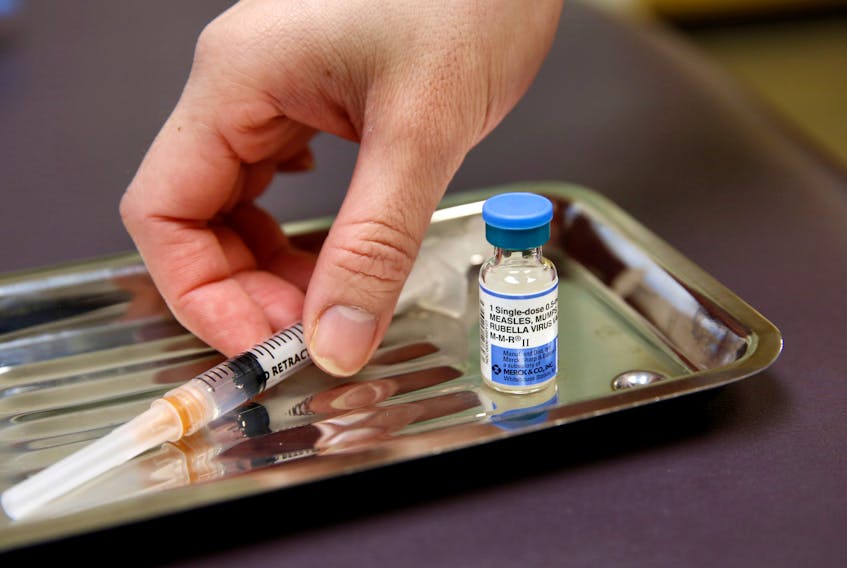On Friday, the Pacific islands of Samoa invoked emergency powers, closing all schools and declaring plans to make measles vaccinations mandatory.
The dramatic response came as a lethal measles outbreak swept the nation of 200,000, killing at least 16 people, many younger than two, and infecting more than 1,100.
A low measles vaccination rate — perhaps 30 per cent — is the culprit. There’s evidence the outbreak is linked to New Zealand, which, with more than 2,000 cases, has itself been dealing with a resurgence of the disease.
That’s a sobering example of what can happen when vaccination rates for deadly, but preventable, childhood diseases — such as measles, mumps and whooping cough — fall below levels needed to protect populations.
Around the world, the insidious, irresponsible anti-science message of anti-vaxxers has weakened vaccination rates, leading to increased outbreaks of diseases once thought almost eradicated.
Measles cases have been rising for years globally, according to World Health Organization statistics.
In response, more and more jurisdictions have moved to make childhood vaccination regimens mandatory.
For example, earlier this month, Germany passed a law that will make measles vaccinations mandatory for school-aged children, except in cases of medical exemptions approved by a doctor, as of March 2020. Parents who don’t comply face fines of $2,750.
That country’s measles vaccination rate may be as low as 80 per cent, experts say. Germany has seen a sharp rise in measles cases in schools and daycares this year.
More than a third of European nations, including France and Italy, already have mandatory vaccination policies.
In the U.S., all 50 states require school-aged children to be vaccinated. All states allow medical exemptions, 45 recognize exemptions based on religious beliefs while just 15 permit exemptions based on personal beliefs.
Experts say an immunization rate of 95 per cent of the population is necessary to provide what’s called herd immunity. That refers to the level of protection needed to shield those who cannot be vaccinated, for medical reasons or because they are too young, from preventable communicable diseases.
The looming danger of an outbreak may be greatest in Nova Scotia, where only 71 per cent of seven-year-olds have been immunized for measles and mumps. That’s the lowest rate in the country.
Two provinces, New Brunswick and Ontario, have made vaccinations mandatory for attending school, allowing exemptions based on medical, religious and philosophical grounds.
Other provinces, including those in Atlantic Canada, should join them.
Not doing so unnecessarily puts those who cannot be immunized, for medical reasons, at risk.
RELATED:









